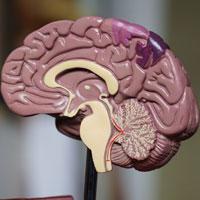
Dementia is a general term for memory loss, loss of language, problem-solving and other thinking abilities that impede daily life. It is a degenerative brain disease. Alzheimer’s is the most common form of dementia.
According to the Alzheimer’s Association, 50 million people worldwide are living with Alzheimer’s and other dementias. With Alzheimer’s and dementia, complex brain changes occur that cause damage to the hippocampus and the entorhinal cortex, essential parts of the brain responsible for memory. As this damage continues, neurons die, and more parts of the brain begin to become affected. While early signs of the disease include memory loss as the disease progresses and more parts of the brain are affected, bodily functions too begin to change.
Signs & Symptoms
Alzheimer’s is a complicated disease and there are many signs and symptoms. Here are common warning signs:
- Difficulty solving problems
- Confusion with time and place
- Memory loss that interrupts daily life
- Problems with speaking or finding words
- Misplacing items without the ability to retrace steps
- Desire to withdraw from social activities
- Mood changes
- Poor judgement
- Difficulty with spatial relationships
Approximately 12-18% of people over the age of 60 are living with mild cognitive impairment.
Risk Factors
Cardiovascular health plays an important role in diagnosing degenerative brain diseases. Cardiovascular disease and stroke are risk factors. Family history and genetics play a role as well, but the majority of Alzheimer’s disease cases, mainly among those older than 60, are not hereditary. Other factors include head injury, hypothyroidism, diabetes and depression. But there is good news! Many of these risk factors can be controlled by adopting healthy lifestyle choices such as lowering your stress level, improving nutrition and controlling diabetes and getting regular exercise to lower your risk of cardiovascular disease.
Treatment Options
Unfortunately, there is no current cure for Alzheimer’s disease. But there are different treatments that can slow brain degeneration and delay decline, offering patients more time. There are medications that can help memory and cognitive related behaviors as well as non-drug treatments such as managing behavior symptoms to promote physical and emotional comfort. All options should be carefully considered with help from your doctor.
When to Seek Help
Although age is a risk factor for dementia, it is not a normal part of aging. About 11% of Americans aged 65 and older have Alzheimer’s. However, when memory loss becomes overwhelming and everyday tasks are interrupted it could be time to speak with your doctor. If a family member is displaying signs or has risk factors, it is important to be an advocate for their health as progression of the disease varies by person and can put a patient at risk for their own safety. Additionally, seeking emotional support and mental health counseling is an important part of caring for a loved one who has Alzheimer’s.
While Alzheimer’s can be a devastating disease there are many options and treatments available now to slow down progression. Arielle Albert, GRMDC project manager studied gerontology and adds “If you are living with or caring for a loved one with Alzheimer’s, an Alzheimer’s support group, such as ALZConnected, hosted by The Alzheimer’s Association, are widely available. These support groups allow patients and caregivers to ask questions, and converse with individuals going through similar experiences. For caregivers, these support groups can allow for the exchange of caregiving methods such as providing cognitively stimulating activities, maintaining a daily routine and ensuring a comfortable environment, and methods to promote caregivers’ wellbeing.” Understanding all of the risks, and options related to Alzheimer’s and healthcare can significantly help you and your loved ones navigate the disease.
In addition to speaking with your Greater Roslindale Medical and Dental Center physician, there are many resources available online with more information. Our physicians work closely with the Alzheimer’s Disease Center at Boston Medical Center and The Alzheimer’s Association has up to date information on cutting edge treatments and more.
